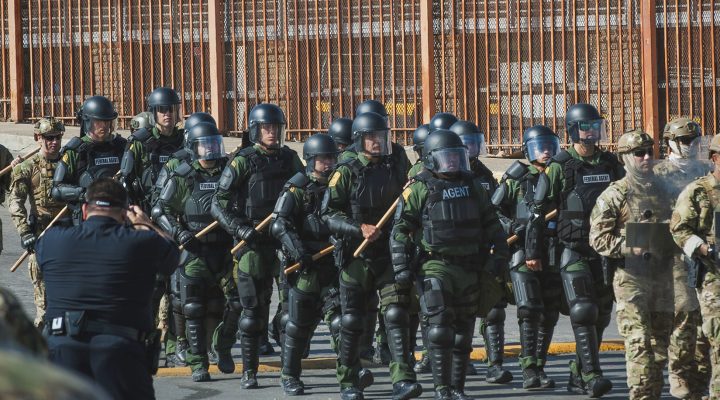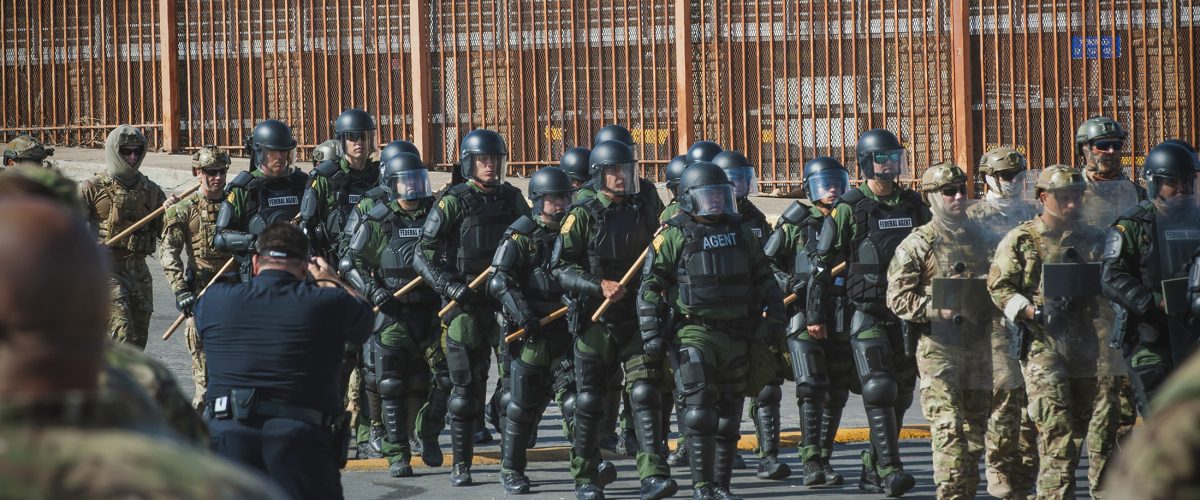On Nov. 18, 2024, President-elect Donald Trump announced plans to declare a national emergency and deploy the military to enforce mass deportations as soon as he’s back in office.
For many, this decision feels unprecedented, a stark departure from the norms of domestic policy. Yet, like the mythical story of the boiling frog, where gradual increases in temperature go unnoticed until it’s too late, this moment may signify the normalization of unilateral executive decisions and militarized solutions to societal challenges.
For Christians, this announcement presents a profound challenge. With a majority of believers voting for Trump in the recent election, the church must now confront the tension between political support and moral responsibility.
“The church must now confront the tension between political support and moral responsibility.”
How do we honor our biblical mandate to welcome the stranger while addressing the risks of policies that wield military force against vulnerable populations? And what is our role as the water around us grows warmer?
Deploying the military to assist in deportations is more than a political decision; it carries significant risks for society and democracy.
Erosion of civil liberties. The Posse Comitatus Act, enacted in 1878, was designed to prevent the military’s involvement in domestic law enforcement. Circumventing this safeguard through an emergency declaration risks undermining constitutional protections and setting a precedent for broader uses of military power on U.S. soil. Today, it’s immigration enforcement; tomorrow, it could be dissenting voices or other contentious domestic issues.
Precedent of unchecked power. History warns us against allowing too much authority to concentrate in one branch of government. As President Dwight D. Eisenhower famously cautioned in his farewell address, “In the councils of government, we must guard against the acquisition of unwarranted influence … by the military-industrial complex.” When military force becomes a tool for domestic issues, it signals a dangerous shift toward autocratic governance.
Impact on the military itself. The military is trained for combat and national defense, not for the nuanced, community-oriented work of law enforcement. This misalignment can harm military morale and divert resources from national security. Moreover, it risks framing the military as an adversarial force in the eyes of immigrant communities, eroding trust and social cohesion.
A society numb to force. Gradual normalization of extreme measures conditions society to accept what once seemed unthinkable. Today’s “emergency” response could become tomorrow’s standard practice, leaving future generations with a less free, less compassionate society.
The church is uniquely positioned to offer moral clarity and compassionate action in this moment by four means:
“While Christians are called to respect governing authorities, this does not mean blind allegiance.”
Hold leaders accountable. While Christians are called to respect governing authorities (Romans 13:1), this does not mean blind allegiance. We also are called to speak out against injustice. Proverbs 31:8-9 reminds us: “Speak up for those who cannot speak for themselves, for the rights of all who are destitute. Speak up and judge fairly; defend the rights of the poor and needy.” Supporting a leader does not absolve us of the responsibility to hold them accountable to these principles.
Advocate for biblical justice. Scripture consistently calls God’s people to show compassion to the stranger and the foreigner. Leviticus 19:33-34 commands, “When a foreigner resides among you in your land, do not mistreat them. The foreigner residing among you must be treated as your native-born. Love them as yourself, for you were foreigners in Egypt.” This mandate does not change based on political circumstances. The church must advocate for policies that prioritize human dignity over fear and force.
Provide practical support. Churches can serve as sanctuaries of hope and help for immigrant families. Offering legal assistance, food, shelter and community support embodies the love of Christ and stands as a witness against policies that dehumanize.
Promote unity amid political division. Many believers may feel conflicted, torn between their political choices and their moral convictions. The church must create spaces for honest dialogue, education and reflection on how our faith shapes our political engagement. By fostering unity and understanding, we can build bridges within the body of Christ.
If we accept militarized immigration enforcement today, we risk normalizing it and other extreme measures in the future. The church must be vigilant, resisting complacency and offering a prophetic voice that calls society back to justice and compassion.
Martin Luther King Jr. once said, “Injustice anywhere is a threat to justice everywhere.” As the church, we must recognize that tolerating injustice in immigration policy has broader implications for the integrity of our democracy and the witness of our faith.
This is a defining moment for the church. As the water heats around us, we must choose whether to stay silent or to act. We must pray, be vigilant and take action when needed.
We are called to rise above partisanship and stand firmly on the foundation of Scripture. May we remember that our allegiance is not to any political leader but to the Lord who commands us to “act justly, love mercy and walk humbly.”
Rosaly Guzman is a teacher, speaker and life coach. She holds a master’s degree in theology and is working on a doctoral degree in ministry. She serves at Crosslife Church in Oviedo, Fla,, in the women’s ministry.



